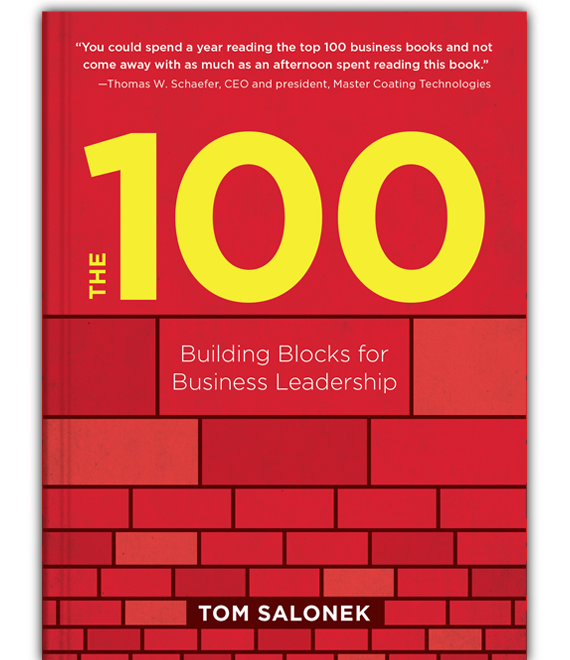Thoughts from The 100: Hiring
 In my book, The 100: Building Blocks for Business Leadership, I devote seven chapters to the hiring process. Why so much focus on something so basic? As Sherlock Holmes might note, “It’s elementary.”
In my book, The 100: Building Blocks for Business Leadership, I devote seven chapters to the hiring process. Why so much focus on something so basic? As Sherlock Holmes might note, “It’s elementary.”
Without great people you cannot build a great company. People are at the heart of everything we do and they are central to client satisfaction. So avoid the temptation to hire quickly. While hasty hires may seem like a simple solution in the short term, you’ll end up spending more time and money in the long run. I’ve learned it the hard way: employees hired in a hurry rarely make a good fit. We use a proven hiring process at Intertech, which includes:
- Hire slowly – take time to thoroughly vet your candidates. If you’re wowed by someone’s technical prowess but concerned about his or her honesty or attitude, don’t risk it (more about this in my next post).
- Consistently ask all candidates the same questions – to ensure the best hiring result, use consistent questions that all candidates must answer. You’ll find it will be much easier to compare candidates if you have an apples-to-apples set of responses.
- Vary the setting with interviewing candidates multiple times – for example, if the potential employee will have substantial client contact or need to interact with top management, take him or her to lunch to observe social skills and table manners.
- Involve multiple people from your organization – at Intertech, the final in-person interview includes meeting with two of our employees for a team interview.
- Use LinkedIn to learn more about any candidates that you may be seriously considering – this is a good way to find common connections, which may help you learn more about candidates from people you already know and trust.
- Always check references and ask open-ended questions,– it’s easy to let emotions, especially positive ones, tempt you to skip your due diligence before offering a job to someone who appears ideal. Don’t yield to this temptation. Always call the candidates three or four most recent employers or clients and ask questions that get the real story. Ask, “What did Bill do?” instead of, “Bill said he was a project manager who oversaw 20 employees. Is this true?” Open-ended questions ensure that you will get a more complete and accurate description of the candidate’s past responsibilities and performance.
Next time:
Teamwork makes the dream work or as we say at Intertech, “One Team, One Dream”